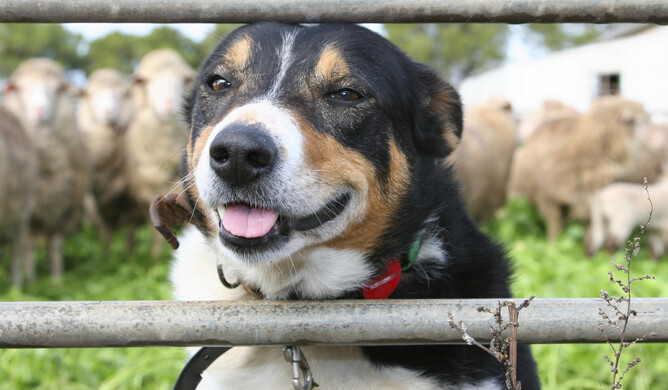If you own a pet, the sad truth is that you will probably outlive them. In this day and age, however, there is a lot you can do to help your pets live to a ripe old age. During the month of October, we are holding a Senior Wellness Month to promote an increase in quality (and quantity) of life for our senior friends.
We all realise that as we get older medical conditions can become a bigger issue and these can range from discomfort to debilitating, to life threatening. The best way to manage these problems is to spot the signs as early as possible, allowing us to address them before they deteriorate. This ensures the best possible outcome and is invariably the most cost effective approach.
Our pets are now living much longer, healthier lives, just as we are. It is now not uncommon to see cats in their 20's and dogs in their high teens. This has been achieved through improvement in nutrition and health care.
For a while now, it has been common to consider that 1 animal year is equivalent to 7 of our years. But with the oldest dog and cat on record being in their 30's, that no longer rings true. It does, however, give us a good idea idea on how rapidly our pets are ageing relative to us. We consider an animal to be 'senior' usually from 7 years of age, although it does depend on their size, with the larger dogs ageing faster.
As we reach our senior years it is recommended that we have an annual health check. With our animals, 1 year can be a very long time regarding their medical status and it is often recommended that 6 monthly check ups are ideal. At the very least, an annual check up is required. Just like people, this should include:
- A full physical exam (assessing the mouth, joints, abdomen, eyes, heart and lungs etc)
- Blood test (to look for signs of early disease)
- Blood pressure (hypertension is a problem in older pets too)
- Urine sample (to assess for kidney function, infections and diabetics)
- Thyroid tests (for cats only)
How does it work?
This will all be provided in a 2 step process with the first consultation with one of our qualified veterinary nurses. The nurse will provide an initial assessment, as you some questions to identify any underlining concerns, take the blood pressure, collect samples for blood and urine tests.
The second consultation will be with the veterinarian and will include a full physical exam, discussion of the test results, and provide a comprehensive report on your pets health and any recommendations.

